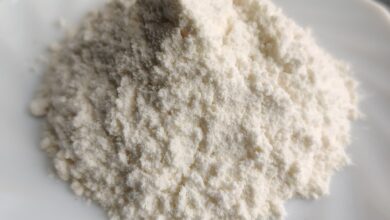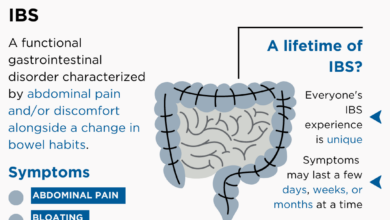
Should You Have Fermented Foods Everyday?
Should you have fermented foods everyday? That’s a question many health-conscious individuals ponder. The answer, as with most things related to diet, isn’t a simple yes or no. Fermented foods, packed with beneficial probiotics, offer a wealth of potential benefits for gut health and immunity. However, excessive consumption can also lead to digestive issues.
This exploration delves into the pros and cons, helping you determine if daily fermented food intake is right for you.
We’ll examine the scientific evidence supporting the positive impacts of regular fermented food consumption, while also acknowledging potential drawbacks and addressing individual variations in tolerance and needs. We’ll also explore alternative ways to support gut health if daily fermented foods aren’t suitable for you. Ultimately, the goal is to empower you to make informed choices that align with your specific health goals and lifestyle.
Benefits of Daily Fermented Food Consumption

Source: intermountainhealthcare.org
Daily consumption of fermented foods offers a wealth of potential health benefits, primarily stemming from their impact on our gut microbiome and immune system. These foods are packed with beneficial bacteria, known as probiotics, which play a crucial role in maintaining overall well-being. By incorporating them into your daily diet, you can potentially improve digestion, boost immunity, and even reduce the risk of certain chronic diseases.
The Impact of Fermented Foods on Gut Health
A healthy gut microbiome is essential for optimal digestion and nutrient absorption. Fermented foods introduce beneficial bacteria into the gut, helping to restore the balance of microorganisms and improve the overall gut environment. This can lead to improved digestion, reduced bloating and gas, and more regular bowel movements. A diverse and thriving gut microbiome is linked to better overall health and well-being.
The introduction of diverse strains of probiotics through fermented foods helps cultivate this diversity. This process helps prevent the overgrowth of harmful bacteria, improving the functionality of the gut.
The Role of Probiotics and Their Impact on the Immune System
Probiotics are live microorganisms, primarily bacteria and yeasts, that confer health benefits when consumed in adequate amounts. Fermented foods are naturally rich in these beneficial bacteria. These probiotics interact with the immune system in several ways. They can help strengthen the gut barrier, preventing harmful substances from entering the bloodstream. They can also stimulate the production of antibodies and other immune cells, enhancing the body’s defense against pathogens.
Studies have shown a strong correlation between gut health and immune function, highlighting the crucial role of probiotics in maintaining a robust immune response.
Examples of Fermented Foods and Their Nutritional Profiles
The following table illustrates the diverse range of fermented foods available and their unique nutritional profiles and probiotic content. Note that the exact probiotic content can vary depending on factors such as the fermentation process and the specific strain used.
| Fermented Food | Probiotic Content (Examples) | Key Nutritional Benefits | Health Benefits |
|---|---|---|---|
| Yogurt (with live cultures) | Lactobacillus bulgaricus, Streptococcus thermophilus | High in protein, calcium, and vitamin B12 | Improved digestion, boosted immunity, stronger bones |
| Kimchi | Lactobacillus plantarum, Leuconostoc mesenteroides | Rich in vitamins A, C, and K, as well as fiber | Improved gut health, enhanced immune function, potential anti-cancer properties |
| Sauerkraut | Lactobacillus species | Good source of vitamin C, fiber, and antioxidants | Improved digestion, enhanced nutrient absorption, potential anti-inflammatory effects |
| Kefir | Variety of Lactobacillus and Bifidobacterium species | High in protein, calcium, and probiotics | Improved digestion, boosted immunity, potential benefits for bone health and lactose intolerance |
Research Findings on Fermented Foods and Disease Risk Reduction
Numerous studies have explored the correlation between regular fermented food consumption and a reduced risk of certain diseases. For instance, some research suggests a link between regular consumption of fermented dairy products and a lower risk of cardiovascular disease. Other studies have indicated a potential association between fermented food intake and a reduced risk of certain types of cancer, though more research is needed to establish definitive causal relationships.
These findings highlight the potential of fermented foods as a valuable component of a healthy diet for disease prevention. The positive effects observed are likely due to the combined actions of the probiotics, improved gut health, and the presence of other beneficial compounds in these foods.
Potential Drawbacks of Daily Fermented Food Consumption
While fermented foods offer a plethora of health benefits, it’s crucial to acknowledge that consuming them daily isn’t universally beneficial. Like anything else, moderation is key, and excessive intake can lead to some undesirable side effects. This section explores potential drawbacks and cautions for specific individuals.Excessive consumption of fermented foods, particularly for those unaccustomed to them, can cause digestive upset.
The high concentration of probiotics and organic acids can overwhelm the gut microbiome, leading to bloating, gas, diarrhea, and abdominal discomfort. This is especially true if you suddenly increase your intake significantly. Your gut needs time to adapt to the increased microbial load.
Digestive Discomfort from Excessive Fermented Food Intake
The fermentation process produces various byproducts, including gases like carbon dioxide and hydrogen. For individuals with sensitive digestive systems, the increased gas production from a high intake of fermented foods can lead to significant discomfort. The organic acids present, while beneficial in moderation, can also irritate the gut lining in large quantities, causing inflammation and pain. Symptoms may vary from mild bloating to severe diarrhea depending on individual tolerance and the type of fermented food consumed.
Starting with small portions and gradually increasing intake allows your body to adjust to the changes in gut flora and minimize these negative effects.
Individuals Who Should Limit Fermented Food Intake
Certain individuals may need to exercise caution and potentially limit their intake of fermented foods. People with compromised immune systems, such as those undergoing chemotherapy or with autoimmune diseases, should consult their doctor before significantly increasing their consumption of fermented foods. This is because the introduction of a large number of new bacteria, even beneficial ones, can potentially overwhelm an already weakened immune system.
Similarly, individuals with inflammatory bowel disease (IBD) like Crohn’s disease or ulcerative colitis should approach fermented foods with caution, as they might exacerbate existing inflammation.
Potential Interactions Between Fermented Foods and Medications
Some medications can interact negatively with the components found in fermented foods. For instance, certain antibiotics may interfere with the beneficial bacteria introduced through fermented foods, reducing their effectiveness. Conversely, some fermented foods might influence the absorption or metabolism of specific medications. Always consult with your doctor or pharmacist if you are on medication and considering increasing your intake of fermented foods to ensure there are no potential adverse interactions.
This is particularly important for individuals taking immunosuppressants or medications affecting gut motility.
Nutritional Value of Fermented Foods Compared to Other Probiotic Sources
It’s important to understand that fermented foods aren’t the only source of probiotics. While they offer a naturally occurring and often diverse range of beneficial bacteria, other options exist. Here’s a comparison:
- Fermented Foods: Offer a wide variety of probiotics alongside other nutrients like vitamins, minerals, and prebiotics. However, probiotic strains and concentrations can vary greatly depending on the type of food and fermentation process.
- Probiotic Supplements: Provide a guaranteed number of specific probiotic strains. However, they may lack the diverse range of microbes and other beneficial compounds found in fermented foods. The quality and efficacy can vary between brands.
- Other Foods Containing Probiotics: Some non-fermented foods, such as kefir and yogurt (depending on production methods), also contain probiotics but usually in lower concentrations than fermented foods.
The best approach is often a combination of a balanced diet including a variety of fermented foods alongside other probiotic-rich foods and potentially a probiotic supplement, guided by individual needs and health status. Always consult with a healthcare professional before making significant dietary changes, particularly if you have underlying health conditions.
Factors Influencing the Decision to Consume Fermented Foods Daily

Source: patrika.com
The decision of whether or not to incorporate fermented foods into your daily diet is a personal one, influenced by a complex interplay of individual needs, lifestyle, and potential health considerations. There’s no one-size-fits-all answer, and what works for one person might not work for another. Understanding these influencing factors is key to making an informed choice.Individual dietary needs and preferences play a significant role in determining fermented food intake.
Some individuals may already consume a diet rich in probiotics from various sources, rendering daily fermented food consumption less crucial. Others might prioritize a plant-based diet where fermented foods offer a valuable source of protein and nutrients. Taste preferences also matter; someone who dislikes the tangy flavor of sauerkraut might find it difficult to incorporate it daily, whereas someone who loves kimchi might easily include it in multiple meals.
Individual Dietary Needs and Preferences
Dietary needs, such as those related to gut health or specific nutrient deficiencies, can strongly influence the decision to consume fermented foods daily. For example, individuals with irritable bowel syndrome (IBS) might find that certain fermented foods alleviate their symptoms, while others experience negative reactions. Similarly, individuals following a vegan or vegetarian diet might rely on fermented foods like tempeh or miso for essential amino acids and protein.
Personal preferences regarding taste and texture also significantly impact daily consumption. The variety available—from creamy yogurt to sharp kefir to pungent kimchi—means that finding palatable options is possible for most people.
Lifestyle Factors and Fermented Food Benefits
Lifestyle significantly impacts how the body responds to and benefits from fermented foods. Individuals with high stress levels might find that the gut-supporting properties of fermented foods are particularly beneficial, helping to maintain a balanced gut microbiome often disrupted by stress. Regular physical activity can influence digestion and nutrient absorption, potentially enhancing the positive effects of fermented foods.
Conversely, a sedentary lifestyle and poor sleep habits might reduce the overall benefits. For example, a marathon runner might find that the added probiotics support their gut health and recovery after intense training, whereas someone with a sedentary lifestyle and poor diet might see less pronounced effects.
Food Sensitivities and Allergies
Before incorporating fermented foods into a daily diet, it’s crucial to consider potential sensitivities and allergies. Some individuals are intolerant to lactose, a common component of many fermented dairy products. Others might experience adverse reactions to specific types of fermented foods, such as histamine intolerance with certain cheeses or soy allergies with fermented soy products. It’s essential to introduce new fermented foods gradually to observe any potential negative effects and consult with a healthcare professional or registered dietitian if needed.
Identifying and managing such sensitivities is paramount for safe and beneficial daily consumption.
Gradual Introduction of Fermented Foods, Should you have fermented foods everyday
Introducing fermented foods gradually is essential to avoid digestive upset. The gut microbiome needs time to adjust to the new bacteria.
- Start with small portions: Begin with a small amount (e.g., a tablespoon of yogurt or a small serving of sauerkraut) of one type of fermented food once or twice a week.
- Choose mild varieties: Opt for milder fermented foods initially, such as plain yogurt or less tangy sauerkraut. More pungent varieties can be introduced later.
- Observe your body’s response: Pay close attention to how your body reacts. If you experience any digestive discomfort (gas, bloating, diarrhea), reduce the amount or frequency of consumption.
- Increase gradually: Once you tolerate the initial amount without problems, gradually increase the quantity and frequency over several weeks or months.
- Diversify slowly: Once you’ve comfortably incorporated one type of fermented food, slowly introduce others to diversify your probiotic intake.
Alternative Approaches to Achieving Gut Health Benefits

Source: nchc.org
Maintaining a healthy gut isn’t solely dependent on fermented foods. While they offer significant benefits, a holistic approach encompassing various dietary strategies and lifestyle choices is more effective in promoting long-term gut wellness. This section explores alternative pathways to a thriving gut microbiome.
Diversifying your approach to gut health ensures resilience and addresses individual needs. Focusing solely on one method, even a beneficial one like fermented foods, can overlook other crucial elements contributing to overall digestive well-being.
Prebiotics: Fueling the Friendly Bacteria
Prebiotics are non-digestible food ingredients that act as food for the beneficial bacteria already residing in your gut. They promote the growth and activity of these beneficial microbes, enhancing their positive impact on digestion and overall health. Think of them as the fertilizer for your gut garden. Consuming prebiotics is crucial for a balanced gut microbiome, as it helps maintain the existing beneficial bacteria population.
A diverse range of prebiotics is optimal for supporting a wider array of beneficial bacteria.
Excellent sources of prebiotics include:
- Onions and Garlic: Rich in fructans, a type of prebiotic fiber.
- Bananas (especially unripe): Contain resistant starch, a type of prebiotic fiber.
- Asparagus: Provides inulin, another type of prebiotic fiber.
- Leeks and Chicory root: Excellent sources of inulin.
- Oats: Contain beta-glucan, a soluble fiber that acts as a prebiotic.
Fermented Foods vs. Probiotic Supplements
Both fermented foods and probiotic supplements aim to introduce beneficial bacteria into the gut, but they differ in their delivery methods and overall impact.
The following table summarizes the key differences:
| Feature | Fermented Foods | Probiotic Supplements | Considerations |
|---|---|---|---|
| Delivery Method | Naturally occurring bacteria in food matrix | Concentrated strains of bacteria in capsule or powder form | Fermented foods provide a wider range of bacteria and beneficial compounds beyond probiotics. |
| Bacterial Diversity | Typically higher diversity of bacterial strains | Often contains specific, selected strains | A diverse gut microbiome is crucial for overall health; fermented foods tend to offer more diversity. |
| Other Nutrients | Provides additional nutrients like vitamins, minerals, and antioxidants | Primarily provides live bacteria | Fermented foods offer a broader nutritional profile compared to supplements. |
| Cost | Generally less expensive | Can be more expensive, especially high-quality supplements | Cost-effectiveness varies; fermented foods often represent a more affordable option. |
The Importance of a Balanced Diet Rich in Fiber, Fruits, and Vegetables
A diet abundant in fiber, fruits, and vegetables is fundamental for optimal digestive health. Fiber, particularly insoluble fiber, adds bulk to the stool, promoting regular bowel movements and preventing constipation. Fruits and vegetables provide a wide array of vitamins, minerals, and antioxidants that support gut health and overall well-being. The prebiotics naturally present in many fruits and vegetables also contribute to a thriving gut microbiome.
A balanced diet fosters a diverse and resilient gut ecosystem, enhancing its ability to protect against harmful bacteria and promote efficient digestion. A diet lacking in these essential components can lead to an imbalance in gut flora, potentially contributing to digestive issues and other health problems.
So, should you eat fermented foods every day? It’s a great question, and the answer depends on your individual needs. A healthy gut is linked to overall well-being, and for some, that might include daily kimchi or kefir. Interestingly, gut health is also being explored in relation to neurological conditions; for instance, check out this article on strategies to manage Tourette syndrome in children which touches upon the complex interplay of factors influencing the body.
Ultimately, listen to your body and see how your system responds to a regular intake of fermented foods.
Visual Representation of Fermented Food Diversity
Fermented foods, a cornerstone of culinary traditions worldwide, boast an astonishing array of appearances, textures, and flavor profiles. This diversity reflects the myriad of microorganisms involved in the fermentation process and the unique ingredients used across different cultures. Imagine a vibrant tapestry woven from the threads of countless recipes, each contributing its unique hue and texture to the overall picture.The following descriptions aim to evoke a sense of this global fermented food landscape, focusing on five distinct examples.
While words cannot fully capture the sensory experience, hopefully, these descriptions will tantalize your taste buds and inspire you to explore the world of fermented delights.
Kimchi: A Korean Culinary Staple
Kimchi, a cornerstone of Korean cuisine, presents a vibrant spectacle of color and texture. Imagine a medley of finely shredded Napa cabbage, vibrant red from gochugaru (Korean chili flakes), punctuated by the bright white of garlic and the subtle green of scallions. The texture is a delightful contrast: crisp cabbage pieces yielding to a slightly fermented softness, with a satisfying crunch from the occasional radish or other vegetables.
So, should you eat fermented foods every day? It’s a great question, and the answer might depend on individual needs. Factors like gut health and overall diet play a huge role, and understanding those nuances is key. This ties into the fascinating research on how our bodies react to different foods, like the article on are women and men receptive of different types of food and game changing superfoods for women , which highlights how gender can influence nutritional needs.
Ultimately, a balanced approach, informed by your own body’s response, is best when considering daily fermented food intake.
The flavor is a complex dance of spicy heat, pungent garlic, and a subtly sweet and sour undertone, a testament to the lactic acid fermentation process.
Sauerkraut: The Tangy German Treasure
Sauerkraut, a traditional German fermented cabbage, offers a starkly different visual experience compared to kimchi. Picture finely shredded cabbage, pale white or slightly yellowish in color, packed tightly into a jar. The texture is noticeably dense, almost compact, with a characteristic slightly soft, yet still crisp bite. The flavor is predominantly tangy and sour, a result of the lactic acid bacteria converting sugars into acid during fermentation.
Its earthy, slightly acidic notes make it a versatile accompaniment to various dishes.
So, should you eat fermented foods every day? It’s a great question, and honestly, a balanced approach is key. A strong gut microbiome is linked to better overall health, and fermented foods definitely help. However, remembering the importance of overall wellness is crucial; just read about Monali Thakur’s hospitalization, as detailed in this article monali thakur hospitalised after struggling to breathe how to prevent respiratory diseases , highlighting the need for a holistic approach to health, which includes a balanced diet and lifestyle beyond just fermented foods.
Therefore, incorporating fermented foods into a varied and healthy diet is a good step, but it’s not a magic bullet.
Miso: A Japanese Umami Powerhouse
Miso, a fermented soybean paste, is a far cry from the vibrant colors of kimchi or the pale hues of sauerkraut. Imagine a rich, dark brown paste, almost the color of dark chocolate, its texture ranging from smooth and creamy to coarse and grainy, depending on the type and aging process. The aroma is earthy and complex, hinting at the soybeans and koji (fermented rice) used in its creation.
The flavor is undeniably umami, a savory depth that enhances countless Japanese dishes, adding a rich, salty, and sometimes slightly sweet note.
Yogurt: A Creamy, Versatile Delight
Yogurt, a familiar fermented dairy product, varies greatly in appearance depending on the type and added ingredients. Imagine a creamy, smooth texture, ranging from thick and almost pudding-like to thinner and more drinkable. The color can be pure white, or it can be infused with the vibrant hues of fruits, honey, or other additions. The flavor profiles are equally diverse: plain yogurt offers a clean, slightly tart taste, while flavored versions can be sweet, fruity, or tangy.
Kombucha: A Sparkling, Probiotic Beverage
Kombucha, a fermented tea drink, offers a visually appealing and refreshing experience. Imagine a slightly cloudy, amber-colored liquid, often with visible strands of the symbiotic culture of bacteria and yeast (SCOBY) floating within. The texture is bubbly and slightly fizzy, with a pleasant effervescence that adds a refreshing quality. The flavor profile varies considerably depending on the tea used and the length of fermentation, ranging from slightly sweet and tart to more vinegary and complex.
The overall impression is one of a light, refreshing, and subtly tangy drink.
Last Recap: Should You Have Fermented Foods Everyday
So, should you eat fermented foods every day? The decision is personal. While the potential benefits for gut health and immunity are significant, it’s crucial to listen to your body. Start slowly, observe your reactions, and consider your individual needs and health conditions. A balanced approach, incorporating a variety of gut-friendly foods and practices, is key to achieving optimal digestive well-being.
Don’t hesitate to consult a healthcare professional or registered dietitian for personalized advice.
Commonly Asked Questions
What are some common fermented foods?
Common examples include yogurt, kefir, sauerkraut, kimchi, kombucha, and tempeh.
Can I eat too many fermented foods?
Yes, excessive consumption can lead to bloating, gas, and digestive discomfort. Start with small amounts and gradually increase intake.
Are fermented foods safe for everyone?
No, individuals with compromised immune systems or certain medical conditions should consult a doctor before significantly increasing their intake.
How do I introduce fermented foods into my diet gradually?
Start with small portions of one type of fermented food, increasing the amount slowly over several weeks. Pay attention to your body’s response.





